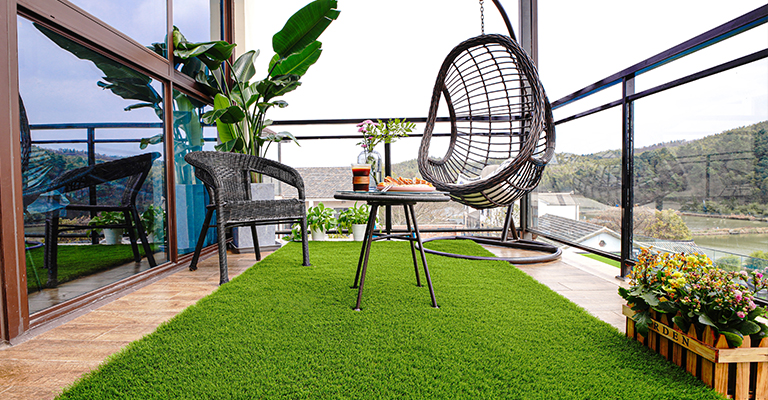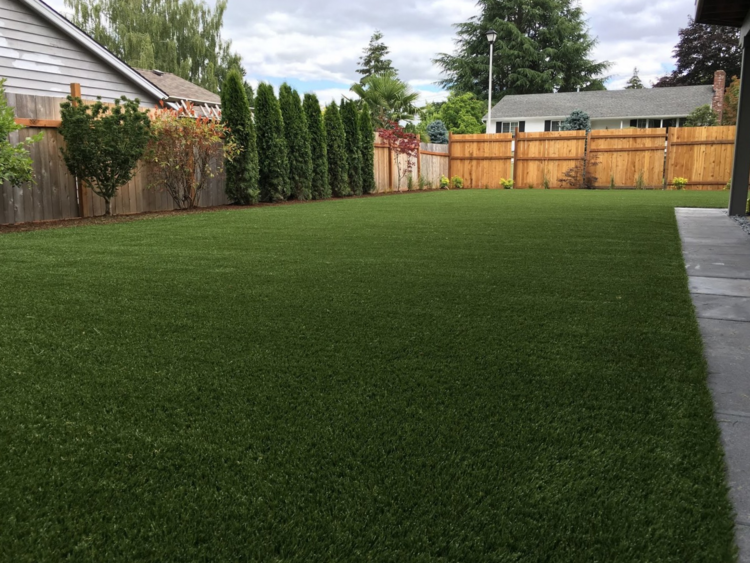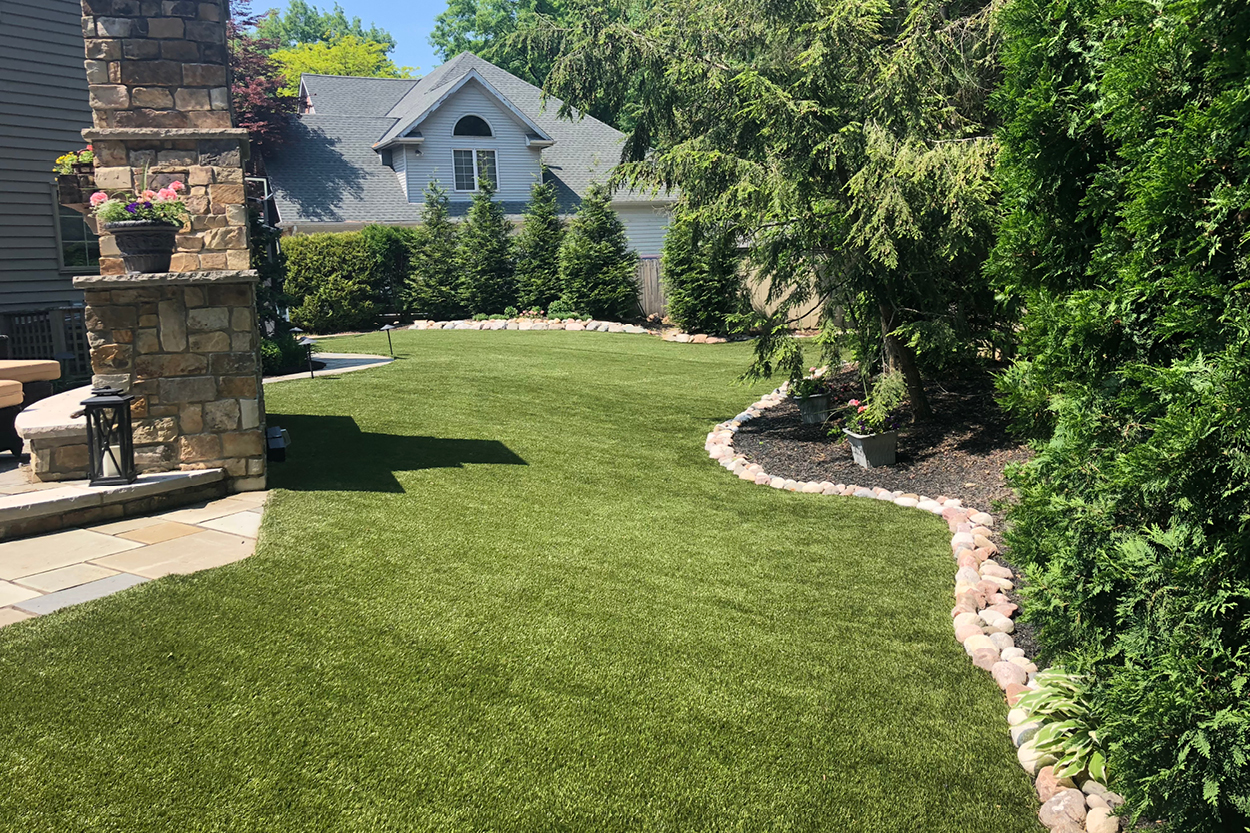Look Into the Environmental Conveniences of Opting for Artificial Turf Solutions
The adoption of synthetic lawn solutions provides an engaging opportunity to deal with pushing ecological obstacles. By substantially reducing water usage and lessening the application of hazardous chemicals, these options not just advertise sustainable landscape design however likewise secure neighborhood ecosystems.
Water Conservation Advantages
One of the most substantial benefits of man-made lawn is its capacity to preserve water. In comparison, fabricated lawn does not require watering, substantially minimizing the total demand for water sources.
By removing the demand for routine watering, man-made grass adds to sustainable landscape practices and helps minimize the ecological effect of extreme water usage. The preservation of water prolongs to the reduction of overflow, which can lead to dirt disintegration and river pollution.
Additionally, the installment of synthetic grass allows communities and homeowners to assign water sources a lot more efficiently, concentrating on crucial usages such as drinking water and agriculture. The shift in the direction of synthetic grass not just advertises responsible water usage but also aligns with wider ecological goals targeted at maintaining natural resources.
As communities progressively focus on sustainability, the water preservation advantages of synthetic grass present a compelling situation for its fostering in residential and industrial landscaping jobs.
Reduced Chemical Usage
The change to man-made grass substantially decreases the dependence on chemical treatments commonly made use of in natural lawn maintenance. Conventional turf administration typically includes the application of fertilizers, herbicides, and pesticides to promote development and control pests. These chemicals can present dangers to human health, neighborhood wildlife, and the atmosphere, adding to soil and water contamination.
In comparison, synthetic lawn removes the demand for these unsafe substances. By minimizing the release of artificial substances right into the environment, synthetic turf promotes much healthier soil and water systems.
In addition, the lack of chemical drainage related to man-made lawn installations helps shield regional waterways from air pollution, sustaining water life and maintaining biodiversity. Arizona artificial turf. As areas progressively focus on lasting techniques, choosing synthetic grass provides a practical option that lines up with ecological conservation goals. With this change, homeowner can take pleasure in lavish eco-friendly spaces without jeopardizing eco-friendly wellness, leading the way for a more sustainable future
Reduced Carbon Footprint

Moreover, the installation of fabricated turf can result in substantial water preservation. Natural grass need significant quantities of water for irrigation, which not only contributes to the carbon footprint connected with water extraction and treatment yet additionally strains local water resources. In contrast, fabricated lawn needs very little maintenance, needing no watering, therefore dramatically reducing water usage and its connected power prices.
In addition, the longevity of artificial grass adds to its decreased carbon impact. With a life-span of up to 15 years or even more, the requirement for frequent replacements is decreased, resulting in much less waste and reduced energy usage in manufacturing and throwing away traditional lawn options. In general, synthetic grass provides a lasting choice for eco conscious landscape design.
Environment Conservation
Habitat preservation is an essential consideration in the discussion over landscaping options, especially when comparing fabricated grass to all-natural lawn. All-natural yard lawns often require considerable maintenance, consisting of the use of pesticides, herbicides, and plant foods, which can detrimentally affect neighborhood ecological communities. These chemicals can leach right into the soil and rivers, damaging native vegetation and fauna and interfering with regional habitats.
In comparison, synthetic grass provides an opportunity to lower the eco-friendly footprint of landscape design. By going with artificial turf, homeowners can minimize the disturbance of all-natural environments connected with typical yard care methods. Artificial turf removes the requirement for dangerous chemicals, consequently securing nearby wild animals and maintaining the stability of surrounding communities. Additionally, the installation of artificial lawn can result in the conversion of former turf areas into even more biodiverse landscapes, such as pollinator gardens or indigenous plant locations, which can sustain local wildlife.
Eventually, the change to artificial turf not just saves water and reduces upkeep initiatives however additionally cultivates a much more unified connection between human activities and the natural atmosphere, advertising environment preservation in the process.
Long-Term Sustainability
Long-lasting sustainability is an important consider examining the advantages of man-made turf over typical turf yards. Among the most significant benefits of artificial try this site turf is its toughness; it can last approximately 15-20 years with very little maintenance, whereas all-natural turf needs regular reseeding and replacement. This long life lowers the need for constant sources, such as water, fertilizers, and pesticides, which are essential for keeping a healthy turf lawn.
In addition, artificial grass adds to a decrease in carbon exhausts connected with yard treatment devices. Typical yards frequently require gas-powered mowers, trimmers, and blowers, all of which contribute to air pollution. Turf installation phoenix az. In contrast, synthetic grass gets rid of the demand for such tools, promoting a cleaner environment
Moreover, the production of artificial lawn significantly makes use of recycled materials, boosting its sustainability profile. As manufacturers embrace green practices, the environmental footprint of synthetic grass remains to decrease.

Verdict
The fostering of man-made grass solutions presents significant ecological advantages, consisting of significant water conservation, reduced dependence on Source dangerous chemicals, and a lower carbon footprint. Man-made lawn aids in maintaining natural habitats by lessening land disruption and advertising lasting sustainability through the usage of long lasting materials. Jointly, these elements underscore the capacity of fabricated turf to contribute favorably to environmental wellness and supply a viable option to conventional landscape design practices in a significantly resource-conscious globe.
In contrast, artificial grass does not require watering, considerably decreasing the general demand for water resources. By reducing the release of synthetic compounds right into the environment, fabricated turf promotes healthier dirt and water systems.
Additionally, the setup of man-made grass can result in significant water conservation. In contrast, fabricated turf requires very little upkeep, needing no watering, click reference consequently dramatically decreasing water use and its connected energy expenses.

Comments on “Long-Lasting Arizona Artificial Turf for Residential and Commercial Applications”